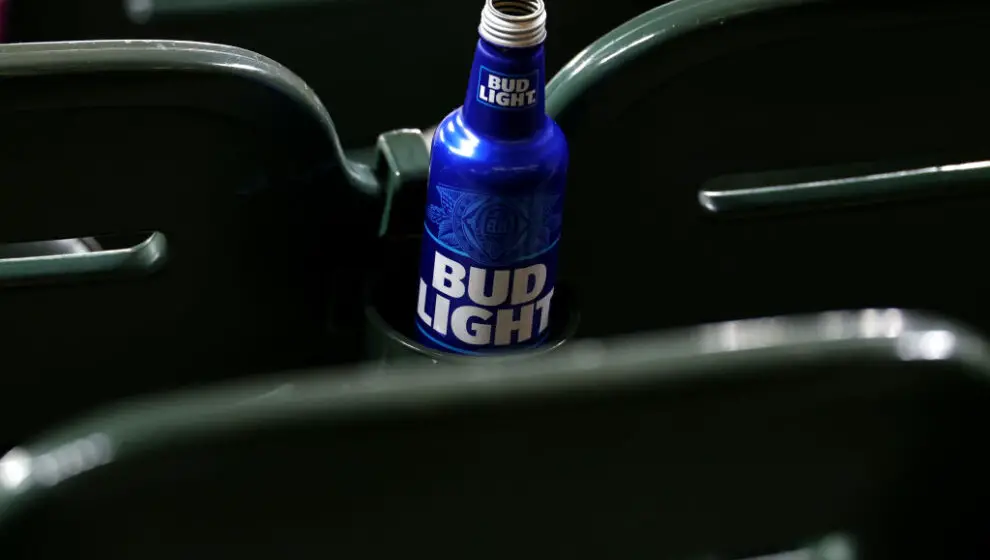The Bud Light boycott is entering its fifth month—but analysts are beginning to claim it is running out of momentum over time.
Key Details
- A recently commissioned Deutsche Bank study found that the April boycott is slowly beginning to fade.
- A survey of 600 respondents found the proportion of Bud Light drinkers who report they are unlikely to buy the brand in the coming months decreased from 18% to 3% in the past month.
- The proportion of beer drinkers who are unwilling to buy Bud Light has also decreased from 21% to 19%.
- This came following a 27% decline in profit, a 9% decline in revenue, and a 14% decline in volume due to the boycott.
- At the height of the protest, Anheuser-Busch’s North American revenue declined by 10.5% year-over-year, with some cities reporting a 42% decrease in sales.
Why It’s Important
On April 1, transgender influencer Dylan Mulvaney released a cross-promotional Instagram video with Bud Light. Subsequently, an interview with Bud Light Vice President of Marketing Alissa Heinerscheid revealed that she was attempting to shift the brand away from its “fratboy” image toward a new audience of young progressive beer drinkers. Within two weeks, Bud Light’s sales precipitously dropped and have continued to do so.
However, Anheuser-Busch’s ability to rely on global sales and a diverse selection of alcohol brands still allowed the company to absorb the hit from Bud Light’s decline and report strong second-quarter sales. Budweiser sales increased 16.9% outside North America, while Corona increased 23.7% outside of Mexico, The Motley Fool notes.
While sales in the key demographic that purchases Bud Light may still be down—being 55 years old and earning less than $25,000 per year—Deutsche Bank claims that the boycott’s key demographics are beginning to purchase the beer again. Google Trends data suggests that the search term “bud light boycott” peaked in mid-April and is currently trending at 4% of its peak interest.
It remains to be seen whether Bud Light will sustain permanent brand damage from the boycott, but this will not be clear until the company’s third-quarter earnings report. It was forced to take several short-term hits by laying off staff and publicly apologizing for the marketing campaign. InBev also recently sold off eight craft-beer brands but claims this has nothing to do with the revenue hit.
As we previously reported, widespread boycotts of this type are rarely successful and usually create additional media interest in controversial brands, but the extended months-long sales decline surprised analysts.

